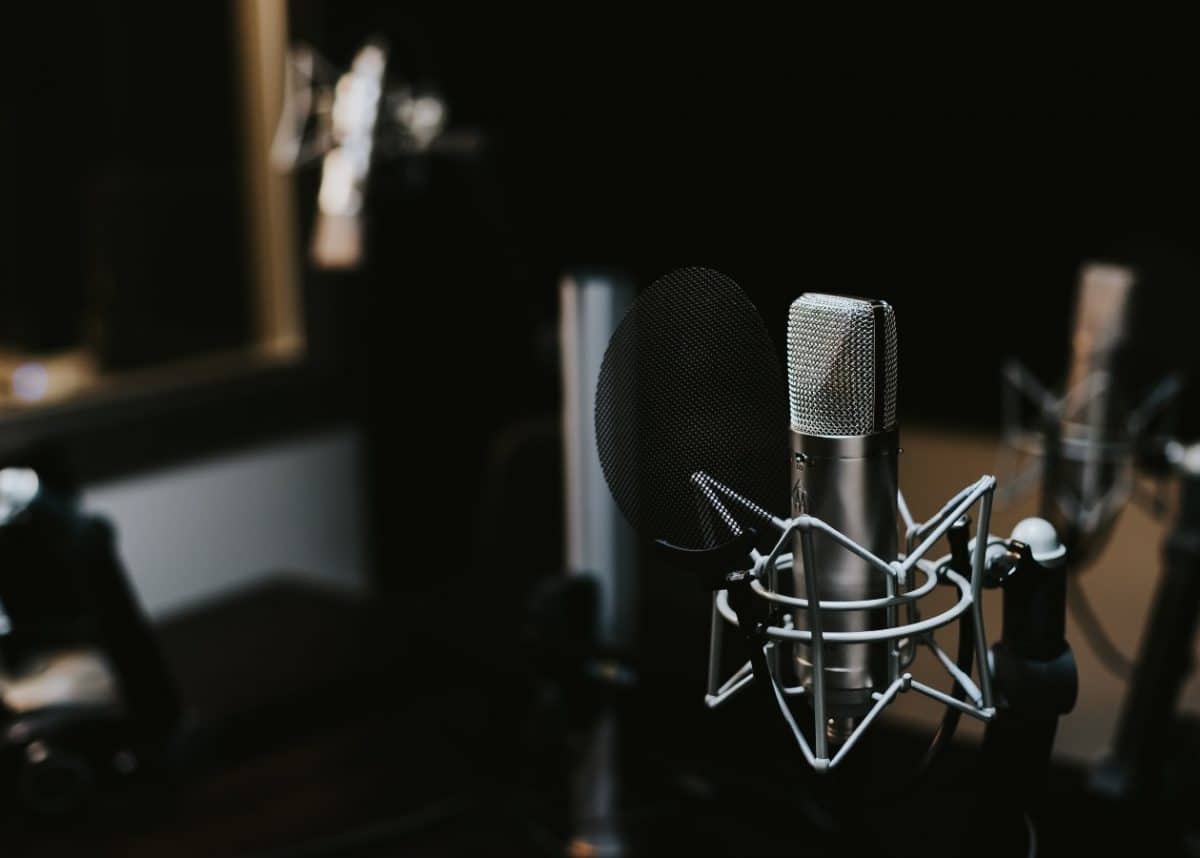Siobhan McHugh, University of Wollongong
A friend listened to her first podcast last month – an investigative journalism narrative – and binged the whole series over a long Friday evening. Now she’s avid for more. It was a reminder that, despite the vaunted podcast boom, 70% of Australians surveyed last year still hadn’t listened to one.

So to get you started, here are some of the best to listen to on these long summer days.
I’ve avoided heavy true crime, and while audio fiction is on the rise, I’ve opted for mostly true stories because to me that’s what podcasting does best: taking us inside another person’s head and heart.
Dolly Parton’s America
Scintillating and surprising, this series examines notions of morality, home, politics, inclusion and the American psyche, with classic country songs and brilliant production by Shima Oliaee and host Jad Abumrad.
Premised on the question “how did the queen of the boob joke become a feminist icon?”, the podcast interviews Parton to document her life story, alongside commentary from academics who parse pro-woman lyrics written by someone who despises the word “feminism”.
Parton defies pigeonholing. One story explored is her friendship with Abumrad’s father, Naji, a doctor at Vanderbilt University. They met when he treated her after a car accident, and the episode traces the unlikely connection between his Lebanese village and the two-room Appalachian cabin where she grew up.
From this friendship, last month it was revealed Parton had donated US$1 million (A$1.37 million) towards COVID-19 research at Vanderbilt.
Snowball
A quirky Kiwi take on the “I-was-scammed” genre, in Snowball, three brothers track down the Californian con-woman who made their parents homeless.
Host Ollie Wards’ wry, affectionate approach blends serious sleuthing with domestic detail – such as informing us of his father’s burning ambition to make it on to an episode of Dr Phil.
The most likeable family in podcast land.
Goodbye To All This
A woman recounting her husband’s death from lung cancer doesn’t sound like standard holiday fare, but this is a precious, tender offering from veteran ABC Radio National producer Sophie Townsend and acclaimed UK producer Eleanor McDowall.
Townsend’s writing is achingly honest, moving from well-observed trivia of family life to the surreal horror of watching your partner die. McDowall has a real feel for personal storytelling and the production avoids mawkishness.
You will smile and cry.
The Missing Cryptoqueen
A compelling British variation on the con artist genre started by Dirty John and given an Australian twist by Who The Hell is Hamish, this centres on a charismatic Bulgarian purveyor of bogus currency, Dr Ruja Ignatova.
Host Jamie Bartlett and producer Georgia Catt uncouple themselves from their BBC background to include podcasty, meta-stories about their process as they hunt Ignatova across Europe while the FBI close in.
A soaring Bulgarian choir adds class and the bonus episode provides a satisfying close-up of the elusive Ignatova.
Wind of Change
The payoff doesn’t deliver, but the journey is so delicious you forgive host Patrick Radden Keefe.
Keefe is exploring a fascinating theory: that the CIA tried to gain “soft power” in the disintegrating Soviet Union of the early 1990s by writing the song “Wind of Change” for a popular German heavy metal band The Scorpions.
Throw in cocaine dealers, intelligence agents and former Panama dictator General Noriega and you’re still only halfway there.
The Jungle Prince
A strangely touching exploration by New York Times journalist Ellen Barry of a family caught in a time warp in the fallout of the India-Pakistan partition.
Barry comes across a man professing to be part of a displaced Muslim royal family, who lives in a crumbling palace in the jungle, in the middle of New Delhi.
The Jungle Prince is a study of Barry’s own obsessive urge to investigate, as she gets caught up with the tragic prince and heads to the UK to sort out an intertwined history of colonialism, sectarianism and madness.
Aria Code
A clever idea from the Metropolitan Opera and New York radio station WQXR, this podcast explores one famous aria each episode, featuring a celebrated opera singer and guests who relate to the opera’s theme. https://www.youtube.com/embed/ZpQnliF_InU?wmode=transparent&start=0
A Song Exploder for opera, the podcast links compelling contemporary personal stories, whetting the appetite for the conclusion where the guest singer delivers the aria in full.
Aria Code is an engaging way to get acquainted with the canon, or a satisfying extension of the relevance of the aria for those already in the zone.
Resistance
Resistance tells stories of black activism around the world in a warm, personal style.
In one episode, host Saidu Tejan-Thomas Jr introduces us to a 22-year-old black New Yorker who, in a few months, goes from attending his first street protest to deciding to run for city council.
In another, Tejan-Thomas tries to understand how the only black man in a mid-Western town hangs onto his “blackness” in such a cultural void.
A timely show that chimes with the #BlackLivesMatter movement.
The New Yorker Fiction Podcast
An effortlessly seductive podcast in which a Great Writer selects a short story by another Great Writer, tells fiction editor Deborah Treisman why they like it — and reads it aloud.
Sometimes the pairing seems obvious: Margaret Atwood selects fellow Canadian Alice Munro; Dave Eggers picks another American former wunderkind Sam Shepard.
Sometimes it is more intriguing: Salman Rushdie goes for Italo Calvino; Orhan Pamuk for Jorge Luis Borges.
Apart from the sheer pleasure of having great stories read aloud, the podcast provides an intimate insight into writers’ literary passions.
S-Town
Yes it’s been around since 2017, but this is the apotheosis of audio storytelling.
Set aside seven hours for this Southern Gothic ode to the mordant genius that is John B. McLemore, a disgruntled resident of “Shit-town”, Alabama.
Produced by the team who broke the internet with Serial, this is literary journalism for your ears. It starts a bit slowly, but episode two is a massive gut punch and it gets more and more mesmerising from there.
If Truman Capote had had a podcast, this would be it.
Siobhan McHugh, Honorary Associate Professor, Journalism, University of Wollongong
This article is republished from The Conversation under a Creative Commons license. Read the original article.








 Explore top-rated compensation lawyers in Brisbane! Offering expert legal help for your claim. Your victory is our priority!
Explore top-rated compensation lawyers in Brisbane! Offering expert legal help for your claim. Your victory is our priority! 

 "
"


